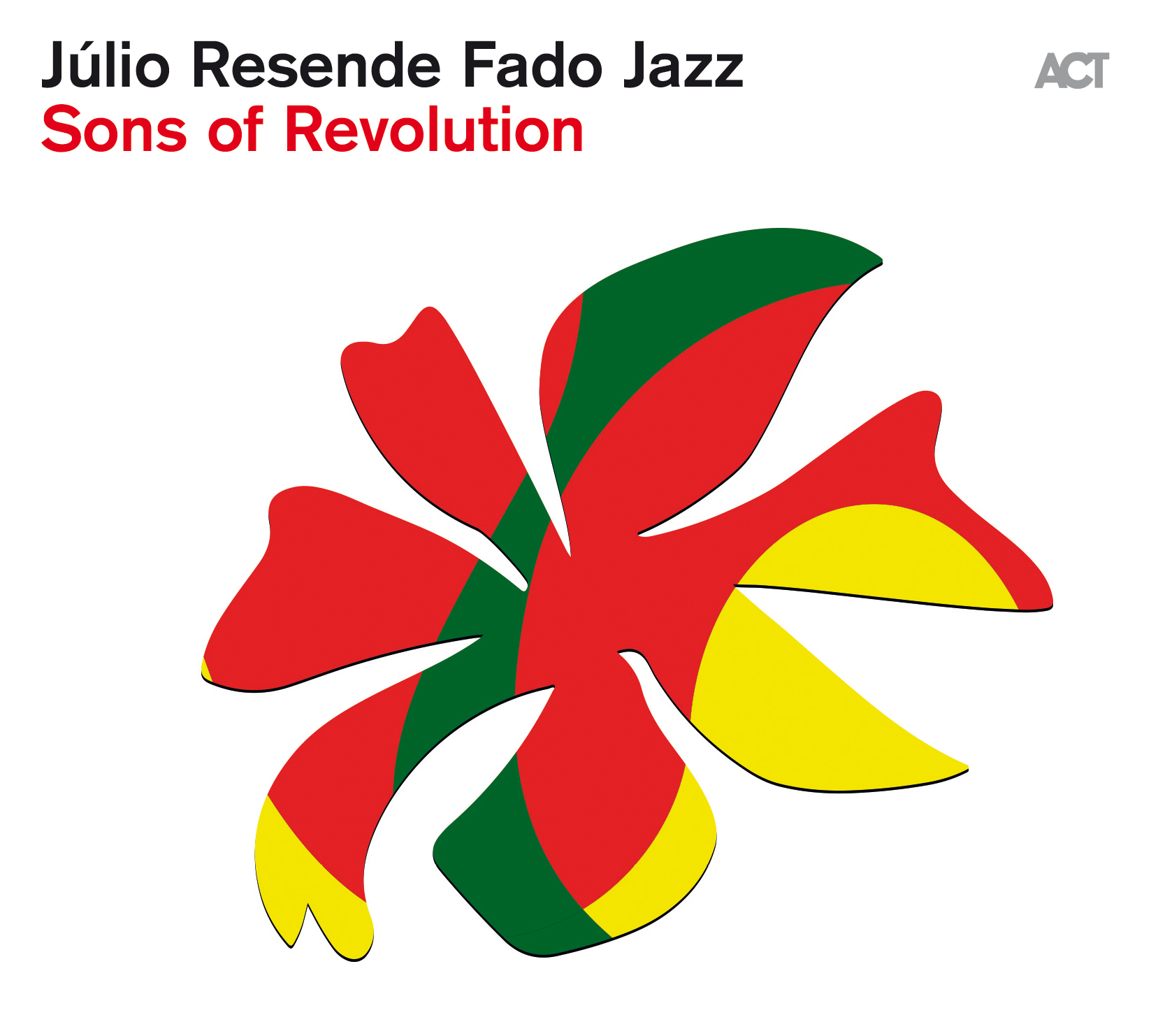The Breakdown
Portuguese jazz pianist and composer Júlio Resende has just released a fourth Fado jazz journey, ‘Sons Of Revolution’ through the indispensable ACT label and it’s another intriguing excursion. Resende first explored the alchemic potential of blending Fado music with the free spirit of jazz sensibilities on his 2013 album, ‘Amália por Júlio Resende’. A deep dive into his own roots through the music of the legendary ‘Queen Of Fado’, Amália Rodrigues, he opened up the tight structures of the established Portuguese art form through his improvisational flair. Two other Fado jazz releases followed the first, ‘Fado& Further’ in 2015 focused on solo piano but then 2020’s ‘Júlio Resende – Fado Jazz Ensemble‘ expanded the permutations by featuring a quartet.
It’s that approach that Resende has returned to on ‘Sons of Revolution’ where he is again joined by André Rosinha and Alexandre Frazão providing bass/drum rhythmic focus and Bruno Chaveiro on Portuguese guitar. Re-convening the Fado Jazz Ensemble from the 2020 release ensures the new album not only flows with continuity but fizzes with intuitive energy. There is a difference though, whereas the first outing glowed with experimental ‘what ifs’, ‘Sons of Revolution’ surges with assured ‘we musts’.
Such fluency is important because the album traces a clear narrative, inspired by Portugal’s 1974 Carnation Revolution which opened up the country’s path to democracy and freed Mozambique and Angola from its colonial control. Telling this story has added personal resonance for Resende as his Angolan father moved to Portugal after his homeland’s liberation and there met his wife, the pianist’s mother. As Júlio Resende candidly recognises ‘Without the revolution, I wouldn’t even exist’.
Maybe the close personalisation that pulses through the album necessitates the subtle opening to ‘Sons of Revolution’. Portugal Celebrates With Red Flowers (A Rosinha Dos Lim ões) is not the fanfare you might expect, but an exquisitely woven and touching guitar/piano duet. Chaveiro’s guitar delivers a swirl of yearning fado chords while Resende’s piano adds more bassy gravitas as the tune unwinds with deceptive power and complexity. Building on this introduction Liberdade Desgarrada finds the two musicians’ inseperable dynamic spinning even tighter. Part crisp etude, part chamber jazz agility, Chaveiro’s clipped guitar rhythm and Resende’s skipping melody conjure up a joyful folksy song.
Clearly the interplay between Resende and Chaveiro is pivotal to the impact of the Fado Jazz ensemble’s music, only on ‘Sons of Revolution’ their connection seems more familiar, fluent and assured. Take Portugal Dances Another Mariquinhas where the nip and tuck, bob and weave between the two players is mesmerising. It’s not just in the call and response, or the intricacies of the patterns that almost lock together but those moments of listening, the quiet vamp or muted staccato, before either musician strides out to the front.
If anything the Fado Jazz momentum gears up further with the album’s quartet tracks. On the hyper-rhythmic Mr. Fado Goes to Africa for the First Time, the band hot step through a world of global beats in a giddy three minute surge. Frazão’s timbre rich drum intro sets the agenda as it swivels from afro-beat to batucada, before the other players get in on the locomotion. Delivered with the focus of EST at their most playful and the flair of Robert Fonseca, the samba tones maybe reference the bawdy dance origins of Fado as well as linking to the African roots of the ‘Sons Of Revolution’ story.
More relaxed but equally impressive the ensemble’s celebratory End Of The Colonial War! No Saudade rolls to a light samba-come-soca shuffle. Here Resende builds his melody on Cesária Évora’s seminal ‘Sodade’, filling her brooding morna blues with a liitle hope and light. It’s a deceptively ‘simple’ piece but the air and space that the quartet give the song oozes musicality. This is an album that doesn’t need to shout about its many strengths.
Inevitably given Fado’s emotional provenance, ballads are central to the ‘Sons Of Revolution’ soundtrack and they unfold with all the necessary drama. Peace at Last is breathtaking from the zither toned chimes of Chaveiro’s anguished guitar to Resende’s more sobering mournful passages where he seems to ring the tears from the melody with an Abdullah Ibrahim-like feel. Mano a Mano continues to follow the stoic Fado sentiments with a Cooder-esque blues that coaxes Resende to fly amongst the bass clicks, cymbal skitters and guitar chops before bringing the tune to a resolved calm.
What’s striking about ‘Sons of Revolution’ is the album’s consistent high points : the deep beauty of Improvisation About “Traz Outro Am igo Tam bém ” as it echoes landscape and gospel with a Mehldau/Highway Rider clarity; the sultry swing of Fado Poinciana for Ahmad Jamal which aches and quivers but avoids any melodrama; and the breezy delicacy of A Casa Dela, where Eurovision star Salvador Sobral delivers a purring, pleading vocal to close the album with a sigh.
Júlio Resende has always been a forward-thinking musician who is rarely stuck in a rut. Besides his jazz leanings he’s delved into indie pop with the band Alexander Search and electronica with the Cinderella Cyborg project. So you sense that his Fado jazz will be something that will be nurtured rather than preserved, quietly shifting rather than simply being consolidated. ‘Sons Of Revolution’ is another accomplished step in that continuing direction.
Get your copy of ‘Sons of Revolution’ by Júlio Resende Fado Jazz from your local record store or direct from ACT Records HERE













No Comment